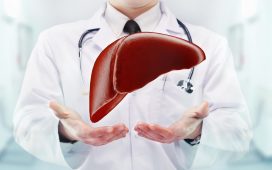Likelihood of pregnancy influenced by race/ethnicity, cause of ESKD, and hemodialysis modality
WEDNESDAY, Oct. 30, 2019 (HealthDay News) — Due to impaired fertility, pregnancy is not common in women on dialysis, but the pregnancy rate is higher than previously thought, and several factors are associated with the likelihood of pregnancy, according to a study published online Oct. 8 in the Journal of the American Society of Nephrology.
Silvi Shah, M.D., from the University of Cincinnati, and colleagues retrospectively analyzed data from the U.S. Renal Data System (with Medicare as primary payer) to calculate pregnancy rates among women on dialysis and identify factors associated with pregnancy.
The researchers found that among the 47,555 women on dialysis, 2,352 pregnancies were identified. Overall, the pregnancy rate was 17.8 per
thousand person years, with the highest rate in women aged 20 to 24 years (40.9 per 1,000 person years). A higher likelihood of pregnancy was seen among Native American (hazard ratio [HR], 1.77), Hispanic (HR, 1.51), and black (HR, 1.33) women compared with white women. Compared with end-stage kidney disease (ESKD) due to diabetes, a higher rate of pregnancy was seen in women with ESKD due to malignancy (HR, 1.64), glomerulonephritis (HR, 1.38), hypertension (HR, 1.32), and secondary glomerulonephritis/vasculitis (HR, 1.18). Likelihood of pregnancy was lower among women on peritoneal dialysis than those on hemodialysis (HR, 0.47).
“The pregnancy rate is higher in women on dialysis than previous reports indicate. A higher likelihood of pregnancy was associated with race/ethnicity, ESKD cause, and hemodialysis modality,” the authors write. “This study improves our understanding of pregnancy in women on dialysis, and can lead to better counseling and shared decision making.”
Copyright © 2019 HealthDay. All rights reserved.








